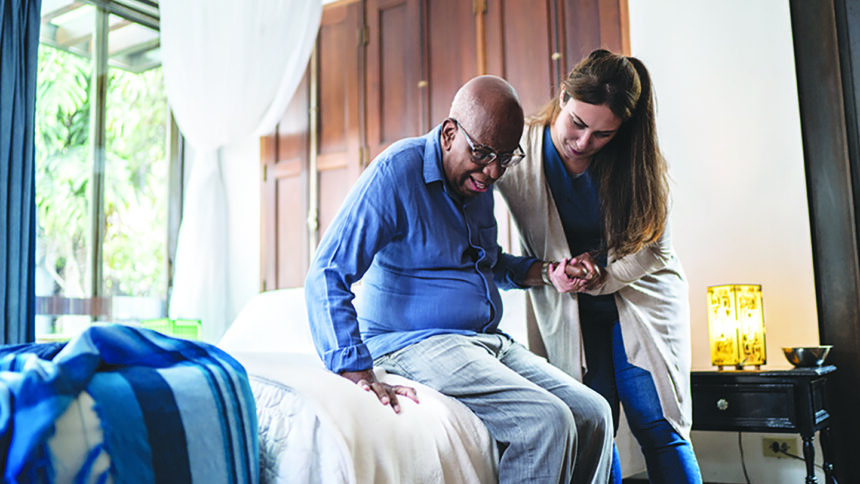
Certified nursing assistants trained in best care practices may improve early detection of pain and pain management for nursing home residents, according to a study by researchers at the University of Alberta.
The research involved an analysis of data from 87 nursing homes, including administrative data for 10,000 residents and survey data for 3,500 nursing assistants. Results showed residents on care units with higher best practice use among CNAs had 32% higher odds of reporting mild pain compared with residents on care units with lower levels of best practice use among nursing assistants.
Best practices include CNAs recognizing verbal and nonverbal signs of possible pain among residents, and then reporting this new or worsened pain to their supervisors (usually nurses). Researchers said earlier pain recognition and reporting by aides could lead to better assessment and pain management by licensed clinicians.
“Nursing assistants are rarely involved in guideline development and quality improvement programs or offered continuing education about pain management,” the study’s authors wrote. “Their important role at the forefront of pain detection should be acknowledged and their capacity better optimized, for example, through more attention to this pivotal workforce with respect to both basic and ongoing education.”
The study appeared in the Journal of the American Geriatrics Society.
From the October 2023 Issue of McKnight's Long-Term Care News




